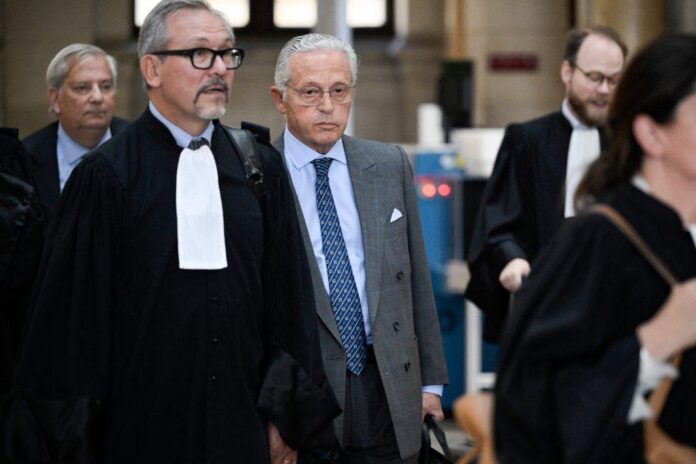French prosecutors are asking the Paris Court of Appeal to fine Guy Wildenstein, dealer and scion of a storied art dynasty, €250 million ($263 million) for allegedly operating a colossal, years-long tax fraud and money laundering scheme, and that he serve one year in prison. If found guilty, he may also be on the hook to pay €500 million or more in back taxes.
Guy, who is 77, is accused of hiding his family’s fortune—luxury real estate, racehorses, and an art collection potentially worth billions—from tax authorities upon the death of his father, Daniel Wildenstein, and later his brother, Alec Wildenstein. The family held its assets in undeclared trusts in Guernsey and the Bahamas, from which they made withdrawals like “piggy banks,” as attorney general Monica d’Onofrio put it in court on Tuesday.
“The Wildensteins took a calculated risk,” d’Onofrio was quoted saying in . “The heirs completed a carefully studied inheritance declaration, in consultation with lawyers, notaries, and advisors.”
Guy has repeatedly denied the allegations, which have been levied against him in a string of court cases dating back to 2016. He was acquitted twice, but France’s highest court ordered the surprise retrial, which has just concluded.
Prosecutors are also asking that Guy’s nephew, Alec, Jr., serve a six-month suspended sentence for his role in the alleged tax evasion, and that Alec Wildenstein’s widow, Liouba Stoupakova, serve a suspended sentence of one year and pay a €150,000 fine. Two of Guy’s lawyers and a notary are also facing prison time and fines between €40,000 and €1 million.
Over five generations, the Wildensteins built an extraordinary collection of masterpieces that has included troves of works by Bonnard, Monet, Gauguin, and many other Impressionist and Old Master artists. Nathan Wildenstein, Guy’s great-grandfather, began the family business trading pictures by Fragonard, Watteau, and other 18th-century French painters. In its later years, Wildenstein & Co. partnered with Pace Gallery in an attempt to reach contemporary art collectors, but split in 2010 after Pace’s clients failed to convert on a significant scale. In the years since the gallery’s influence has waned as market interests increasingly shift away from much of the historical art Wildenstein sells.
At issue for the court to decide now is whether or not Guy was required to declare to the assets held in the family’s trusts to tax authorities. “If everything is legal, why hide it?” Monica D’onofrio asked in court.
Guy’s lawyers have maintained that there were no laws at the time of Daniel or Alec’s deaths that required him to report the foreign trusts. In 2011, France passed what is known as the “Wildenstein law” to address that loophole.

























